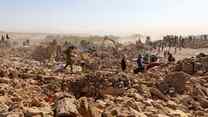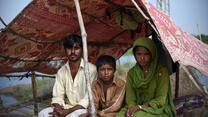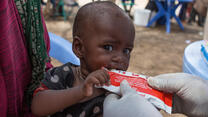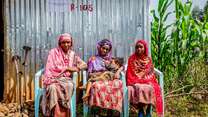Between May 4th-12th, 2021 the International Rescue Committee (IRC) conducted a drought needs assessment in the provinces of Herat, Badghis, Pakitya, Helmand and Khost to get a clear understanding of the impact of the situation caused by the extreme weather conditions that have affected different parts of the world, including Afghanistan. A sample from 484 community members across the five provinces show that water resources are becoming increasingly scarce as result of slow onset drought conditions, with reported cases of increased conflict over water in various communities. Pastoralists have started experiencing loss of livestock and strain on pastoral livelihoods and this will worsen as food prices increase; it has already been reported that some households have not been able meet their food needs. Key findings include:
- 83% of 484 people interviewed are already experiencing displacement within their communities
- 75% respondents reported an increase in conflict arising in areas where water supplies have depleted
- 81% of participants with children under the age of 5 reported diarrhea and illness owing to a lack of clean water
- Interviewees said that some families are being pushed towards extreme survival measures such as selling off their assets,livestocks reducing the number of meals, and child marriage
To prevent large-scale displacement, early response is required to support households faced with challenges of food security and livelihoods in form of cash-based assistance or food distributions. Livelihood support should also be prioritised to protect household assets including provision of livestock fodder and veterinary service. This drought assessment report did not include the other major humanitarian factors such as COVID-19, food security situation and conflict, which impact the lives of the Afghans as a whole.



